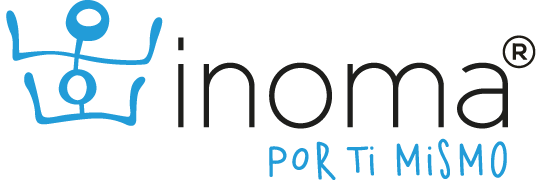
Social-emotional development is the set of skills that achieve the ability to understand one’s own and others’ feelings, regulate emotions, feel and show empathy for others, make responsible decisions, as well as define and achieve personal goals.
For children to development good and lear, it is essential that they learn to develop social-emotional skills in school in addition to current curricular subjects such as mathematics, geography, Spanish and science. Promoting activities that include the relationship with the environment, the family and oneself, makes education a much more integral tool.
The importance of social-emotional development is seen in the consequences it generates, since it has a high impact on self-esteem, on cognitive skills such as attention, understanding or memorization, and on metacognitives such as planning and control. All these together makes them have a more complete learning experience. At the same time, this development reduces students’ emotional stress and problem behaviors.
One must take into account that a human being is not born with social-emotional skills, therefore the role of teachers, parents and caregivers is to teach and promote them. Therefore, it is essential to work with these skills from an early age; this way children can become more prepared adults, with clearer objectives and with better social and individual skills.
Among many studies on learning, some stand out, such as that of the Yale Center for Emotional Intelligence, which developed a program called the RULER Feeling Words Curriculum, in which it states that the development of social-emotional skills affects the way we live, learn, personal well-being and deal with others. The project seeks to teach children and adolescents to be able to recognize emotions, understand their causes and consequences, name or label them and express them in a socially approved way.
Collaborative for Academic, Social and Emotional Learning (CASEL) is a U.S. program founded in 1994, dedicated to providing guidance and leadership to educators in the area of social and emotional learning. Its goal is to establish that social-emotional learning is an essential part of education based on high quality evidence. Today, CASEL proposes one of the most important theoretical approaches in the educational context.
The researchers in this project propose that social-emotional development occurs on the basis of five skills:
- Self-awareness: to be able to identify their own emotions, make an assessment of their abilities and trust themselves.
- Social awareness: being able to identify the emotions of others, take into account different points of view and interact positively with different people.
- Self-management: being able to manage emotions when doing different tasks and being persistent despite difficulties and frustrations.
- Social relationships: being able to maintain healthy relationships, practice cooperation, resolve conflicts and seek help when needed.
- Responsible decision making: understanding what influences one’s decisions, thinking about possible consequences, respecting and caring for individual actions and taking responsibility for each act.
In addition to these skills there are other equally important skills such as autonomy, empathy and collaboration.
Empathy refers to the well-being and dignified treatment of others, the recognition of prejudices associated with diversity, sensitivity to people or groups that are discriminated against, and care for living beings and nature.
Autonomy, on the other hand, is personal initiative, the search for solutions, leadership, decision-making and self-efficacy.
Finally, collaboration refers to assertive communication, accountability, inclusion and conflict resolution.
How to work on the development of social-emotional skills in children?
Through our educational video games we work with socio-emotional skills, including activities focused on self-knowledge, autonomy, self-regulation, empathy and collaboration; these five dimensions were proposed in the new educational model for 2017 by the Mexican Ministry of Public Education. Socio-emotional skills were defined as the behaviors, attitudes and traits of people that contribute to their development and should be learned from preschool to high school level.
As a direct benefit, children have a development in language, thinking and social skills, as well as a better adaptation to the educational environment, lower indicators of behavioral problems and higher rates of happiness and general welfare.
In TAK-TAK-TAK we are convinced that the development of these skills is fundamental for comprehensive learning, so we have ventured into the development of educational video games, which through the digital playful experience, allow them to have an approach to self-knowledge, self-regulation, autonomy, empathy and collaboration in order to be aware of themselves and their emotions in different situations such as the prevention of addictions.
Enter taktaktak.com and find out about our range of educational video games focused on these topics
Aprendizajes clave para la educación integral. Secretaría de Educación Pública https://www.planyprogramasdestudio.sep.gob.mx/descargables/EDUCACION_SOCIOEMOCIONAL.pdf
CASEL https://casel.org/history/
¿Por qué es importante desarrollar las habilidades socioemocionales en la educación básica? Nexos. (2018) https://educacion.nexos.com.mx/?p=1483
Las habilidades socioemocionales, no cognitivas o “blandas”: aproximaciones a su evaluación. UNAM Revista Digital Universitaria. (2018) https://www.revista.unam.mx/wp-content/uploads/v19_n6_a5_Las-habilidades-socioemocionales-no-cognitivas.pdf
Desarrollo Socioemocional en los niños. (2020) https://www.crecerdecolores.com/post/desarrollo-socioemocional-en-los-niños















